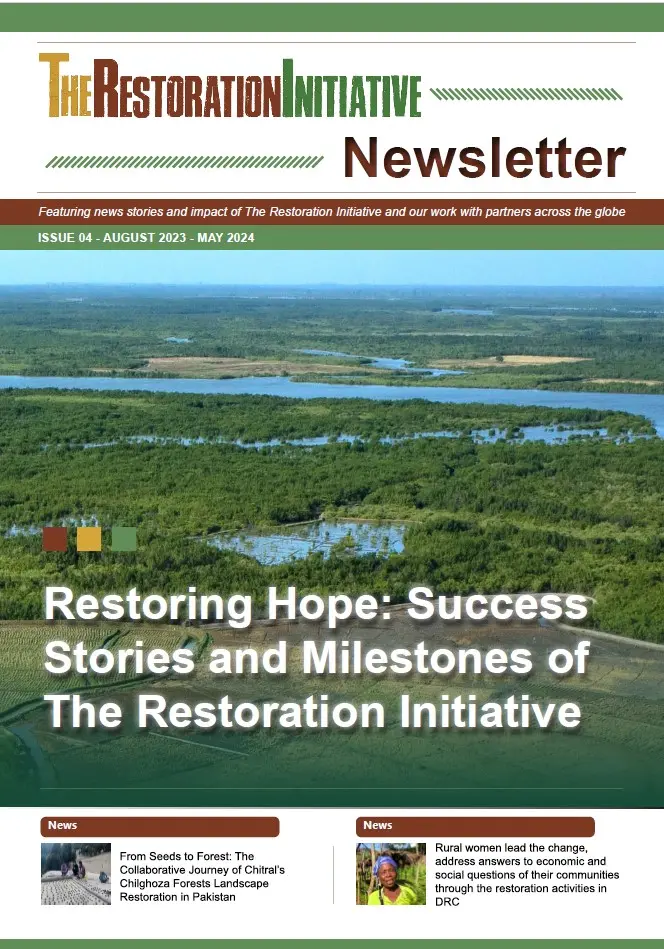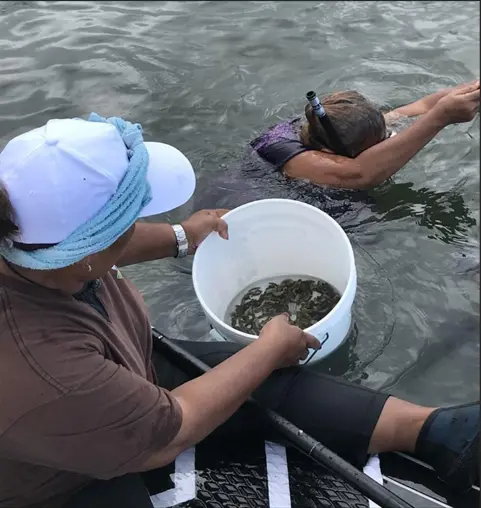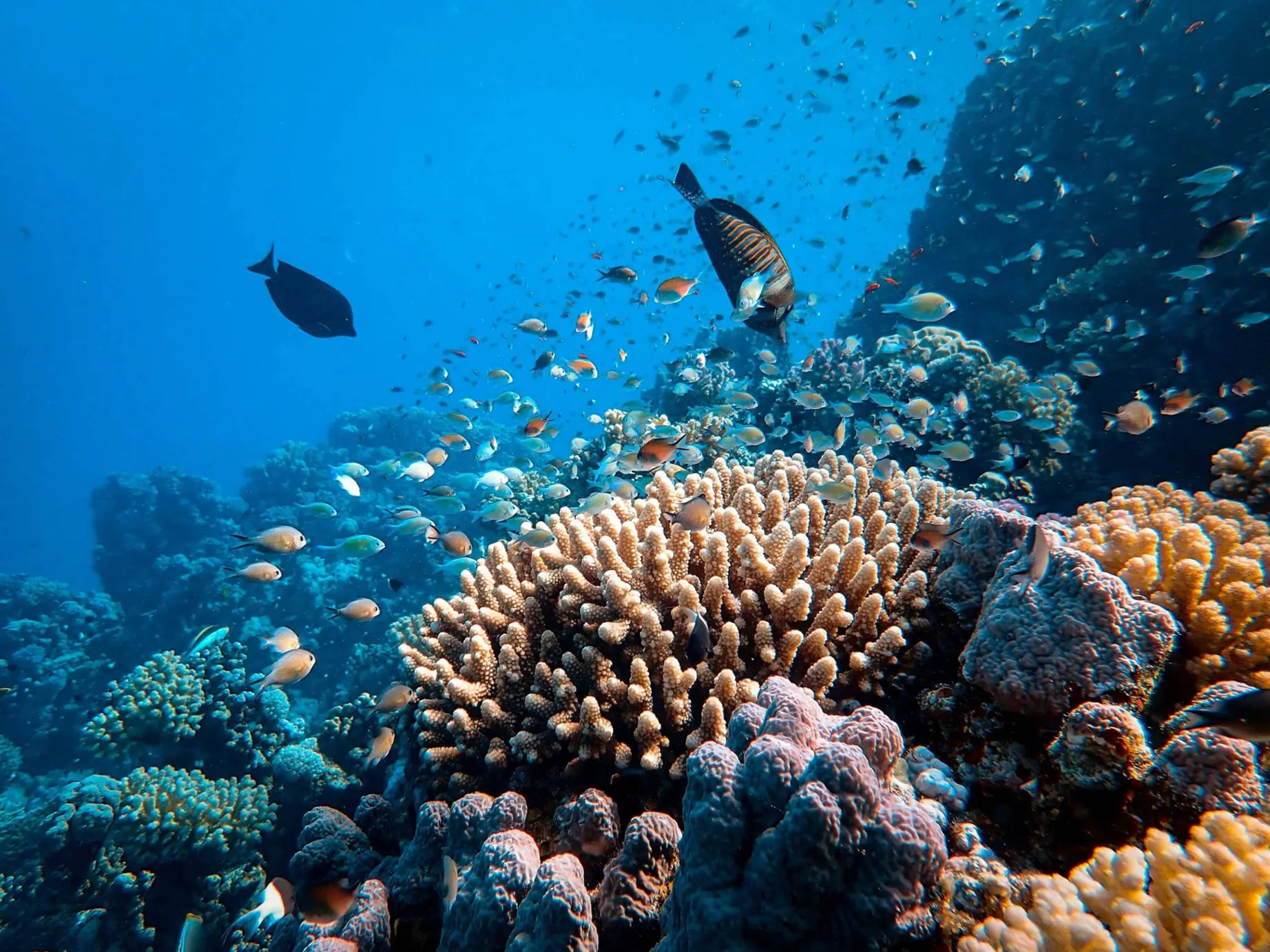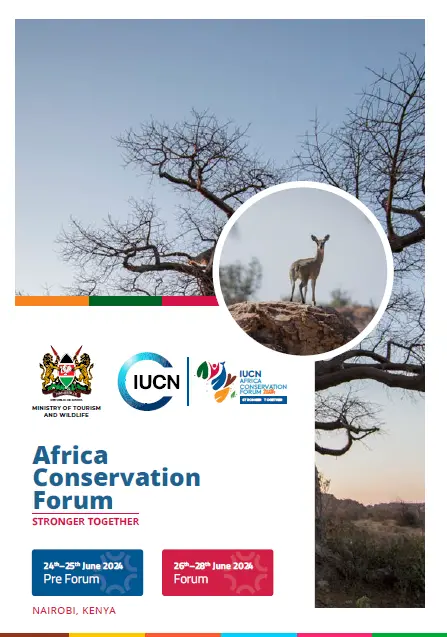Search: Ecosystem restoration resources

News | 24 Jul, 2024
IUCN and FAO sign joint agreement to facilitate data sharing to reach GBF Target 2
Rome, Italy, 24 July 2024 – The International Union for Conservation of Nature (IUCN) and the Food and Agriculture Organization of the United Nations (FAO) today signed a new partnership agreement aimed at streamlining ecosystem restoration reporting as part of Target 2 of the Kunming-…

Publication | 2024
Climate mitigation and biodiversity conservation
Global climate mitigation policies are promoting a radical shift in emission reduction activities to achieve net-zero targets by 2050. Although recent scientific studies have explored the impacts of some climate mitigation initiatives on biodiversity in various contexts, a global perspective of…

Publication | 2024
Guidelines for the application of IUCN Red List of Ecosystems Categories and Criteria : version 2.0
The IUCN Red List of Ecosystems is the global standard for ecosystem risk assessment and a framework for monitoring the status of the world’s ecosystems. It is part of the growing toolbox for assessing risks to biodiversity and aims to support conservation, resource use and management…

News | 18 Jun, 2024
The EU adopts its new Nature Restoration Law
Following a final vote yesterday at the Environmental Council, the EU has just adopted its new European Restoration Regulation. This unique new piece of legislation will be the first to set legally binding restoration targets for the long-term recovery of nature in Europe. Its overarching…

Story | 10 Jun, 2024
Kiwa Initiative facilitates social media session at Heritage in Young Hands EcoCamp
The Sigatoka Sand Dunes National Park recently hosted the annual Heritage in Young Hands (HIYH) EcoCamp, an event focused on environmental education.

Other brief | 2024
The Restoration Initiative (TRI) Newsletter - August 2023 to May 2024
The second edition of the 2023/2024 TRI newsletter has been published.
We made significant progress and rounded up 2023 with an amazing impact. We have also kickstarted 2024 with improved indices and benchmarks for Forest Landscape Restoration in countries of…

Story | 01 May, 2024
Women fishers learn sustainable practices and give back to the ocean
Women fishers in Ngardmau, Palau are learning new ways to make a living while protecting the environment. With the help of Ebiil Society (Inc.) Kiwa Initiative project, they are now running four giant clam farms instead of traditional fishing.

Story | 22 Apr, 2024
G. Carleton Ray, ocean pioneer and inspiration, (1928–2024)
Carleton was decades ahead of the times. Today we pursue his concepts repackaged in different terminology.
"We must avoid the careless and tragic exploitation of the sea which we have not avoided in the case of the land...Some of the richest areas should be set aside...The…

News | 22 Apr, 2024
Against the backdrop of the ongoing fourth global coral bleaching event, the International Union for Conservation of Nature (IUCN), Arizona State University (ASU),…

Brochure | 2024
IUCN Africa Conservation Forum 2024
African Solutions for Nature and People: Creating transformative responses to the biodiversity and climate crisis in Africa.
